Bitcoin, the world’s first decentralized cryptocurrency, has revolutionized the financial landscape. Whether you’re new to the world of digital currency or an experienced user, understanding how to securely store your Bitcoin is crucial. One of the fundamental tools you’ll need in your Bitcoin journey is a Bitcoin wallet. In this article, we’ll explore what a Bitcoin wallet is, how it works, the different types available, and how to choose the best one for your needs.

What is a Bitcoin Wallet?
A Bitcoin wallet is a digital tool that allows you to store and manage your Bitcoin. It doesn’t literally store the Bitcoin, as Bitcoin is a digital money that exists on the internet . Instead, it stores the private keys that are essential to access and control your Bitcoin. These private keys are used to authorize transactions and prove ownership of the Bitcoin.
A Bitcoin wallet is like an online bank account, but with a key difference: it’s decentralized. Rather than being tied to a centralized institution like a traditional bank, a Bitcoin wallet gives you full control over your funds, making it a crucial tool for interacting with the Bitcoin network. Without a wallet, you cannot access, send, or receive Bitcoin.
Sending and Receiving Bitcoin
Just like a bank account allows you to send and receive money, a Bitcoin wallet lets you send and receive Bitcoin. However, instead of using an account number, transactions are made using a public address.
- Receiving Bitcoin: To receive Bitcoin, you share your public address with the sender. This address is like an email address for Bitcoin—when someone sends you Bitcoin, it’s directed to your wallet’s address.
- Sending Bitcoin: When you want to send Bitcoin, you use the private key in your wallet to sign the transaction, proving that you are the owner of the Bitcoin.
Since your wallet is decentralized, you have sole control over your Bitcoin, unlike traditional bank accounts where third parties hold your funds. This gives you a greater degree of freedom and security, but also places responsibility on you to secure your wallet’s private keys and recovery phrase.
With the right Bitcoin wallet, you can seamlessly manage, send, and receive Bitcoin, all while maintaining privacy and control over your assets.
Why Do You Need a Bitcoin Wallet?
If you plan to send and receive Bitcoin on online casinos, sports betting sites, or online poker platforms, a Bitcoin wallet is essential. It not only ensures secure storage of your Bitcoin but also allows you to make quick deposits and withdrawals. With a wallet, you can manage your funds independently without relying on third-party platforms, ensuring greater privacy and control over your transactions. This is especially important for seamless and fast payments in the world of online gaming and betting.
How Does a Bitcoin Wallet Work?
A Bitcoin wallet works by generating and storing a pair of cryptographic keys: a public key and a private key.
- Public Key: This is like your account number. It is used to receive Bitcoin from others. You can share your public key freely, as it only allows others to send Bitcoin to you.
- Private Key: This is like a password that gives you control over your Bitcoin. It is used to sign transactions and prove ownership of the Bitcoin associated with the public key. The private key must be kept secure and private. Anyone who has access to your private key can steal your Bitcoin.
Types of Bitcoin Wallets
There are several types of Bitcoin wallets, each with its own features and security levels. The most common types are hot wallets and cold wallets.
Hot Wallets
Hot Wallets are Bitcoin wallets that are connected to the internet. They are convenient for users who need frequent access to their Bitcoin, such as for sending and receiving funds, making payments for goods and services, or transacting with online casinos. However, because they are always online, hot wallets are more vulnerable to hacks, malware, and phishing attacks.
Types of Hot Wallets:
Choosing the right wallet is crucial for securely managing your Bitcoin. Below is a detailed list of some of the best Bitcoin-only wallets for mobile and desktop devices, focusing on their unique features and benefits.
Mobile Bitcoin Wallets
Mobile wallets are designed for everyday use, enabling you to send and receive Bitcoin on the go. They combine convenience and security, making them perfect for quick transactions.
- Muun Wallet
- Supports both on-chain Bitcoin transactions and Lightning payments, making it versatile for small or large payments.
- Prioritizes simplicity and security with intuitive design and backup options.
- Ideal for beginners and advanced users alike.
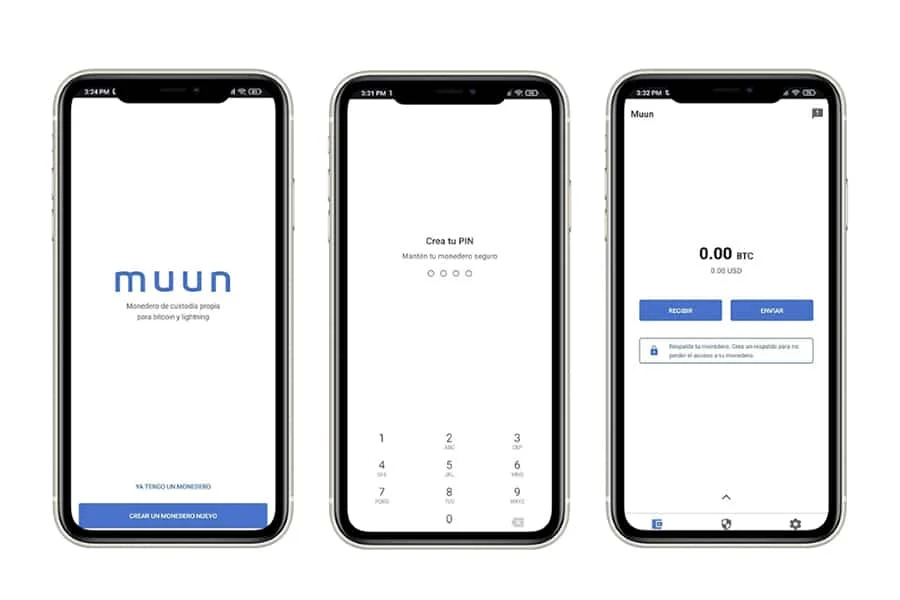
- BlueWallet
- Designed for both regular Bitcoin users and Lightning , offering separate wallets for each.
- Features advanced transaction options, such as fee customization and watch-only wallets for added control.
- User-friendly for beginners but also packed with tools for experts.

- Blockstream Green
- A highly secure wallet with multi-signature authentication, adding an extra layer of protection.
- Integrates easily with Blockstream’s Liquid network for fast and private transactions.
- Perfect for long-term holders who prioritize security.
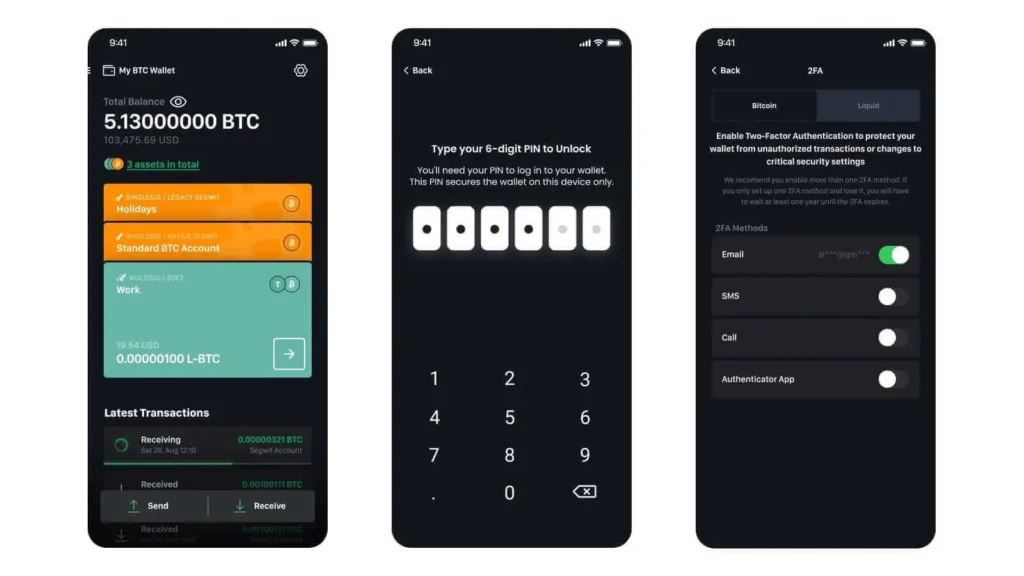
- Wallet of Satoshi
- A custodial Lightning wallet, meaning it handles all technical aspects for you.
- Extremely easy to use, with instant setup and no need for backups or channels.
- Best for those looking for fast microtransactions or payments in the Lightning Network.
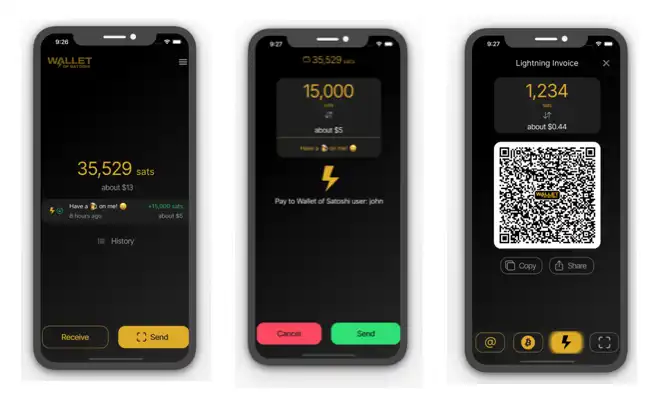
- Phoenix Wallet
- Fully self-custodial Lightning wallet that simplifies channel management, making it user-friendly.
- Automatically handles payments, channels, and fees without user intervention.
- Excellent for those who want to use Lightning without managing technical details.
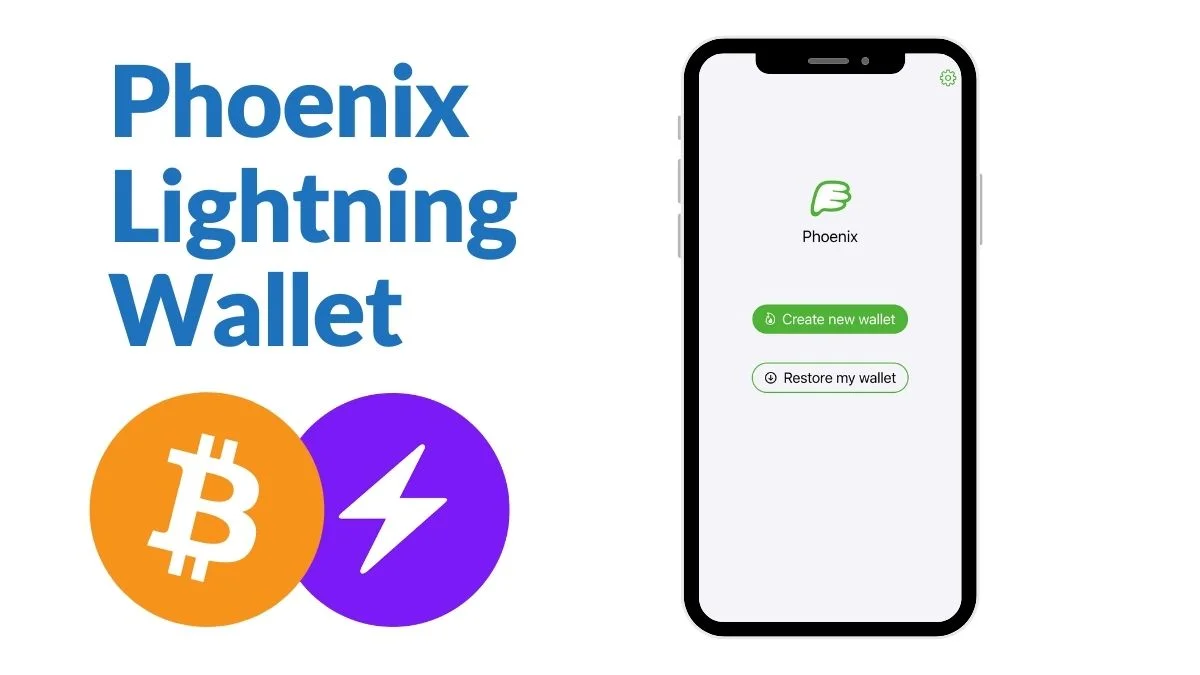
Desktop Bitcoin Wallets
Desktop wallets are powerful tools for managing Bitcoin, offering greater control, advanced features, and enhanced security. Here’s a list of the best Bitcoin-only desktop wallets with detailed explanations:
- Wasabi Wallet
- Privacy-Focused: Features built-in CoinJoin technology, allowing users to mix their Bitcoin with others to anonymize transactions.
- Advanced Tools: Offers coin control, allowing you to select specific UTXOs (Unspent Transaction Outputs) for transactions.
- Open-Source: Transparent and secure, trusted by privacy-conscious users.
- Best For: Users who prioritize privacy and want to reduce the traceability of their Bitcoin transactions.
- Electrum Wallet
- Lightweight: Designed to be fast and efficient, using minimal system resources.
- Advanced Features: Includes multi-signature support, hardware wallet integration, and customizable transaction fees.
- Security-Oriented: Offers seed phrase backups and cold storage integration for maximum protection.
- Best For: Experienced users who need a fast and feature-rich wallet for day-to-day Bitcoin management.
- Sparrow Wallet
- Customizable and Advanced: Offers detailed transaction building, coin control, and integration with hardware wallets.
- Focus on Privacy: Includes Tor integration and optional CoinJoin for private transactions.
- User Interface: Clean and intuitive design that balances simplicity with advanced functionality.
- Best For: Advanced Bitcoin users looking for a highly customizable and privacy-oriented wallet.
- Blockstream Green (Desktop)
- Multi-Signature Security: Provides two-factor authentication with multi-signature functionality for enhanced protection.
- Liquid Network Support: Offers fast, private Bitcoin transactions using the Liquid sidechain.
- Cross-Platform: Syncs seamlessly with the mobile version for a unified experience.
- Best For: Users who want robust security and access to Liquid Network features.
Pros of Hot Wallets:
- Easy to use: Hot wallets are user-friendly and easy to set up, making them perfect for beginners.
- Quick access: They allow for fast transactions, which is great if you need to send Bitcoin immediately.
- Free to use: Most hot wallets are free, making them an affordable option for new users.
Cons of Hot Wallets:
- Security risks: Since they are always connected to the internet, hot wallets are more vulnerable to hacking and phishing attacks.
- Not ideal for long-term storage: If you’re storing a large amount of Bitcoin or plan on holding it for an extended period, hot wallets are not the safest option.
Cold Wallets
Cold wallets are Bitcoin wallets that are not connected to the internet. They are considered the safest option for storing Bitcoin, especially for long-term storage. Cold wallets are ideal for people who want to store a large amount of Bitcoin without worrying about online threats.
Hardware Wallets: Bitcoin-Only Solutions
1. Blockstream Jade
- Overview: Blockstream Jade is a Bitcoin-only hardware wallet designed with advanced security and privacy features. It integrates seamlessly with Blockstream Green, providing multi-signature and enhanced privacy options.
- Key Features:
- Bitcoin-only: No other cryptocurrencies supported, ensuring focus on Bitcoin.
- Multi-Signature Support: Works well with Blockstream Green for multi-sig setups, adding an extra layer of security.
- Privacy and Security: Offers a robust two-factor authentication process and operates with secure firmware to prevent tampering.
- QR Code Transaction Signing: Sign transactions securely offline by scanning QR codes, preventing exposure of your private keys.
- Hardware Integration: Connects to computers or smartphones via USB or Bluetooth, offering easy management of your Bitcoin without compromising security.
- Best For: Users looking for a privacy-focused, Bitcoin-only wallet with strong security features and multi-sig support.
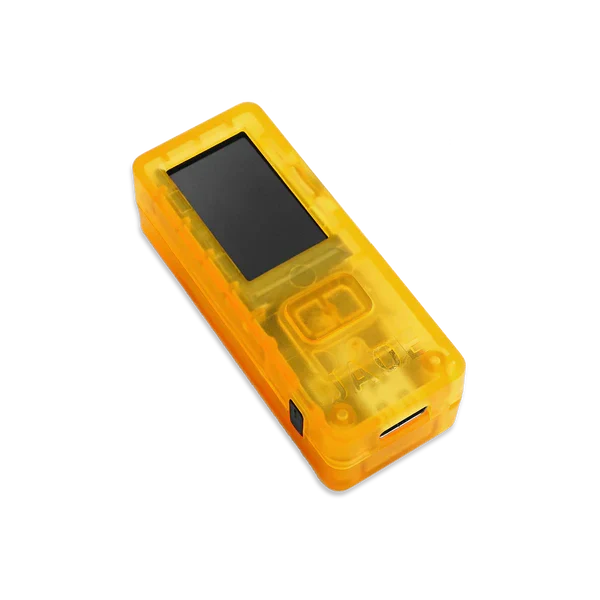
2. Coldcard Wallet
- Overview: Coldcard is one of the most secure Bitcoin-only hardware wallets, providing complete control over your Bitcoin without any reliance on third parties. It’s designed for advanced users who want to securely store their Bitcoin offline with maximum security.
- Key Features:
- Full Control: Completely offline, with no need to trust third-party servers.
- Multisig Support: Ideal for multisignature setups, allowing you to split control of your Bitcoin between multiple devices.
- Encrypted MicroSD: The Coldcard features an encrypted microSD card, which stores your wallet backups securely.
- Air-Gapped Signing: Coldcard allows you to sign transactions in an air-gapped environment, meaning it can never be exposed to the internet.
- Backup and Recovery: Easy backup and recovery process via seed phrase, with extra layers of protection.
- Best For: Advanced users who prioritize cold storage, multisig security, and the ability to securely sign transactions offline.
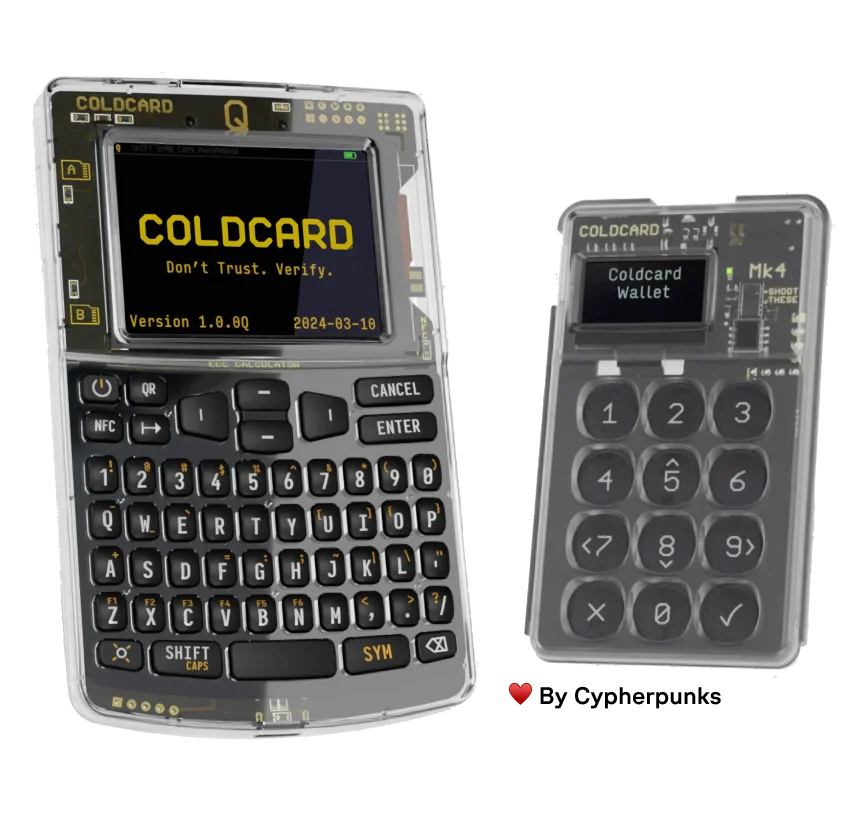
3. BitKey
- Overview: BitKey is a Bitcoin-only hardware wallet and multi-currency support tool focused on security and ease of use. It’s an affordable option for users who want to store their Bitcoin securely, with an emphasis on simplicity and a robust user experience.
- Key Features:
- Bitcoin-Only Security: BitKey is a Bitcoin-only wallet that does not support any other cryptocurrencies, ensuring that the focus remains on securing your Bitcoin.
- Secure Backups: Uses a paper backup system for offline storage, with recovery options in case of device failure.
- User-Friendly: BitKey is designed for users who want to store Bitcoin securely but don’t need all the complex features of high-end wallets like Coldcard.
- Durable Hardware: Built to last, with a durable and robust design that makes it suitable for long-term use.
- Best For: Users seeking an affordable, easy-to-use Bitcoin-only hardware wallet for secure offline storage.
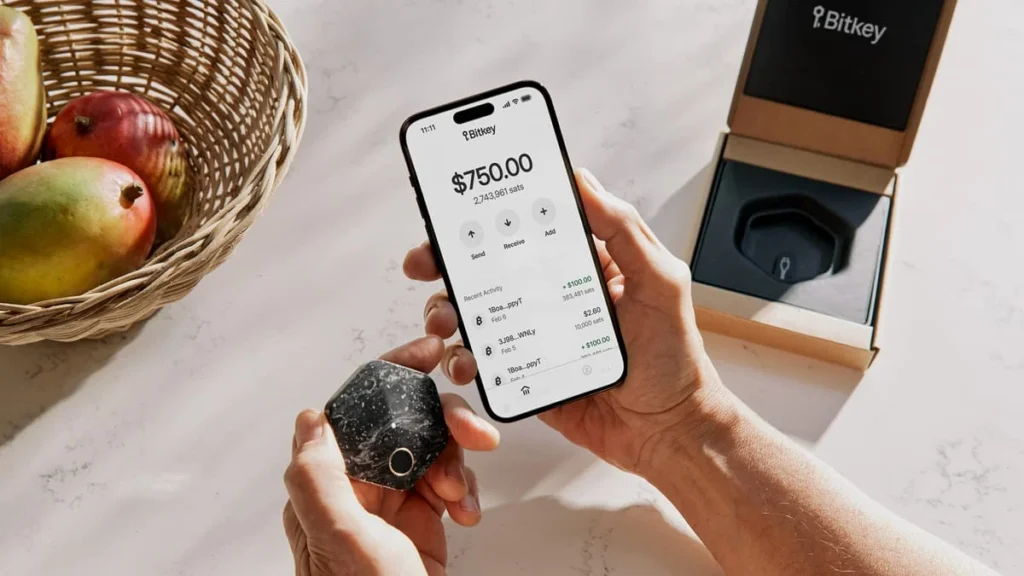
4. Passport Wallet
- Overview: Passport is a sleek, secure, and user-friendly Bitcoin-only hardware wallet created by Foundation Devices. It’s designed to provide users with an intuitive interface while maintaining the highest security standards.
- Key Features:
- Bitcoin-Only Focus: Completely focused on Bitcoin, with no support for altcoins, ensuring all features are optimized for Bitcoin transactions.
- Built-in Multi-Signature: Passport offers support for multi-sig setups, adding layers of security and reducing the risk of single-point failures.
- User Interface: The Passport features a touchscreen for easy navigation and transaction signing, while maintaining high security with encrypted storage.
- Secure Transactions: The wallet allows for secure transaction signing offline, ensuring private keys are never exposed to the internet.
- Backup and Recovery: Easy to back up with a recovery seed, which can be used to restore access in case the device is lost or damaged.
- Best For: Users looking for a simple, intuitive, and secure Bitcoin-only wallet with multi-sig support.
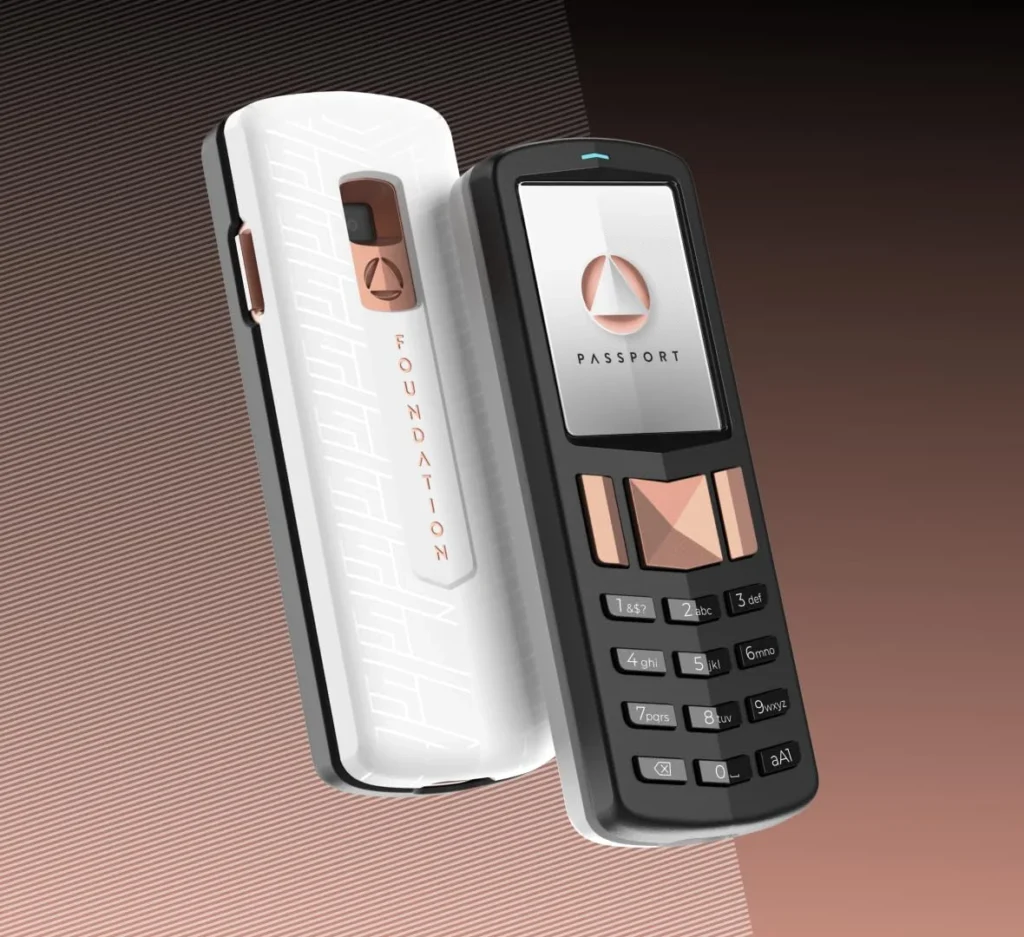
Pros of Cold Wallets:
- Highly secure: Cold wallets are immune to online hacking, phishing attacks, and malware.
- Ideal for long-term storage: If you’re holding Bitcoin for the long term, cold wallets are the safest and most secure option.
- Complete control: With cold wallets, you are the sole holder of your private keys, ensuring that no third party can access your Bitcoin.
Cons of Cold Wallets:
- Less convenient: Cold wallets are not as easy to access or use as hot wallets. Transactions take longer because you must connect your hardware wallet
- Not ideal for frequent transactions: If you plan on using Bitcoin regularly, cold wallets may not be the best option due to the time it takes to access your funds.
How to Choose the Right Bitcoin Wallet for You
Choosing the right Bitcoin wallet depends on your needs and how you plan to use your Bitcoin. Here are some factors to consider:
- Frequency of Use: If you need to access your Bitcoin frequently for trading or payments, a hot wallet may be the best option. However, if you are holding Bitcoin for the long term and don’t need to access it often, a cold wallet is more secure.
- Security: Cold wallets offer superior security because they are offline and immune to online threats. However, hot wallets can also be secure if you use additional features like two-factor authentication (2FA) and strong passwords.
- Ease of Use: Hot wallets are generally more user-friendly, especially for beginners. Cold wallets, such as hardware wallets, may require more technical knowledge to set up and use.
- Amount of Bitcoin: If you’re holding a small amount of Bitcoin for regular transactions, a hot wallet may be sufficient. For larger amounts or long-term storage, a cold wallet is the safest option.
- Backup and Recovery: It’s essential to back up your wallet and have a recovery plan in case something goes wrong. Most Bitcoin wallets offer recovery options like a seed phrase, which can be used to restore your wallet if it’s lost or damaged.
How to Keep Your Bitcoin Wallet Secure
Regardless of whether you’re using a hot or cold wallet, securing your Bitcoin is vital. Here are some tips to protect your wallet:
- Use a Hardware Wallet: A hardware wallet stores your private keys offline, making them less vulnerable to hacking. Devices like Ledger or Trezor are highly recommended.
- Enable Two-Factor Authentication (2FA): If your wallet or exchange supports it, enable 2FA to add an extra layer of security for logging in or confirming transactions.
- Backup Your Wallet: Store your backup recovery phrase (also known as a seed phrase) securely offline in multiple locations. Never store it digitally or online.
- Use Strong Passwords: Ensure your wallet and email accounts are protected with complex, unique passwords. Consider using a password manager to generate and store them.
- Keep Your Software Updated: Always use the latest version of your wallet software to ensure you have the latest security patches.
- Avoid Public Wi-Fi: Do not access your wallet over public or unsecured networks. Use a VPN if you must connect to an insecure network.
- Be Cautious of Phishing: Be careful when clicking links or entering your private keys. Ensure you’re on legitimate websites, and never share your private keys or recovery phrases with anyone.
- Consider Multi-Signature Wallets: Multi-signature wallets require multiple signatures to authorize a transaction, which adds another layer of security.
- By following these practices, you can help protect your Bitcoin wallet from theft and unauthorized access.
A Bitcoin wallet is an essential tool for anyone who owns or plans to use Bitcoin. Whether you choose a hot wallet for easy access or a cold wallet for added security, it’s important to understand the different types of wallets and how to protect your private keys. By choosing the right wallet and following security best practices, you can safely store and manage your Bitcoin for the long term.
As you continue your Bitcoin journey, remember that the safety of your funds is ultimately in your hands. Choose a wallet that suits your needs, and always prioritize security to protect your digital assets.
FAQ - Frequently Asked Questions
How do I backup my Bitcoin wallet?
Backup your wallet by securely storing the seed phrase (recovery phrase) that is generated when you create the wallet. Keep this phrase offline and in multiple, secure locations.
Should I store my seed phrase digitally?
No, it’s not recommended. If your seed phrase is stored digitally (e.g., in an email or on your computer), it’s at risk of being hacked. Store it offline, such as on paper or a metal backup, in a secure location.
What are multi-signature wallets?
A multi-signature (multi-sig) wallet requires more than one private key to authorize a transaction. This adds an extra layer of security by requiring multiple parties to sign off on a transaction.
What is phishing?
Phishing is a scam where attackers impersonate legitimate services or individuals to steal sensitive information like passwords or private keys. Always double-check website URLs and emails before clicking any links or sharing information. By following these tips and understanding the risks, you can greatly improve the security of your Bitcoin wallet.